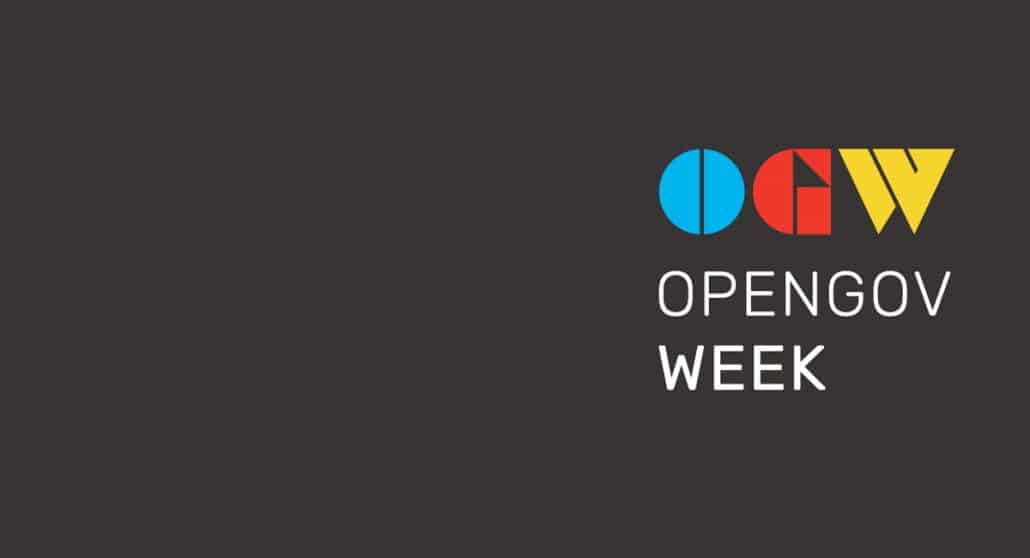An open, transparent, accountable and ethical government is possible when citizens, civil society and governments come together.
This week, 7 – 11 May, is Open Government Week (OGW), an occasion during which countries belonging to the Open Government Partnership (OGP) will focus on developing the culture and practice of transparency, participation and accountability both in public administrations and in society.
OGW, says the OGP, is for “anyone who believes citizens should play a role in government decision-making”. It’s a global call to action to curb distrust in government by promoting direct collaboration between citizens and government. The week includes a series of events where change-makers, thinkers and doers from in and out of government come together to listen to each other’s ideas, discuss solutions, and commit to taking real action.
The principles of openness and open government are necessary components of a system of government founded on the rule of law, says the World Justice Project – because such a government is transparent, accountable, accessible, responsive, and participatory. It shares information willingly, empowers people with tools to hold its employees accountable, and fosters citizen participation in public policy deliberations.
The top three themes for this year’s OGW, as voted by participants, are
- Fighting corruption
- Protecting civic space
- Ensuring gender equality
Why fight corruption?
In many countries – including South Africa – getting a birth certificate, or a routine traffic stop involves a bribe. It can mean nepotism in the awarding of public contracts; or lack of financial or operational transparency by public institutions, from government departments and Chapter 9 entities to Parliament and the courts.
Corrupt practices affect millions of people across the globe in tangible ways, as tax money that should go towards essential services disappear. The world’s poor are ultimately those most negatively impacted. On a larger scale, corruption discourages foreign investment and diverts money to illegal cross-border activities such as money laundering human trafficking. Corruption erodes a citizen’s trust in their government and its ability to serve their interests.
Tax payers have every right to know how their hard-earned money is being spent by those who are entrusted with it. This covers everything from infrastructure, vital goods, and services in health, education, and basic services. Yet, public contracting is the number one corruption risk in governments around the world.
Furthermore, public transparency about the individuals who benefit from a company’s actions is necessary to ensure both company and individual act legally and ethically. It is essential that governments do better to strengthen the transparency requirements around beneficial ownership in order to fight private-sector and bureaucratic corruption.
Why fight gender inequality?
A child born to a literate mother, says the OGP, is 50% more likely to see his or her fifth birthday. When women are treated as equal, contributing members of society, with access to information, health care, education, and work, those societies are more likely to succeed – and in a more inclusive and sustainable manner.
Even so, girls around the world are oppressed, kept out of school, or married off to older men while still in their childhood years. Women are denied access to basic credit or access to information about their reproductive health choices. They are discriminated against when it comes to land ownership, although research has shown that women comprise about 43% of the agricultural labour force globally and in developing countries (with variation across regions and within countries).
Women are also frequently blocked from participating in public and political life, limiting their civic engagement.
This still happens around the world, despite overwhelming evidence that investing in women’s education and health generates among the highest returns for society, because it improves outcomes for children, households, and the larger community. Despite this, entrenched institutional inequalities and repressive social norms have prevented these successes and others from being realised.
Why protect civic space?
Civic space is the capacity of citizens and civil society organisations to freely organise, participate, and communicate without hindrance from government or non-government actors.
Only 4% of the world’s population live in countries with open civic space, and over several years, there has been a sustained and widespread assault on fundamental civil society rights. Freedom of expression, freedom of association, and freedom of peaceful assembly are often denied in practice.
Data from the CIVICUS Monitor, an online platform that tracks and rates civic space conditions in 195 countries, makes a good case for the presence of a global civic space emergency, with the conditions for civil society having been further deteriorated in 2017.
Furthermore, new analysis shows that OGP countries are not exempt from emerging civic space threats.
When civic space is limited, civil society organisations cannot fulfil a number of important roles, including fostering citizen participation, exercising accountability in governance, advocating for policy change, and delivering essential services to otherwise excluded people.
A robust civic space is essential for a dynamic political culture and an innovative open government agenda.

